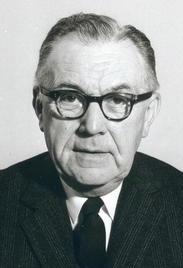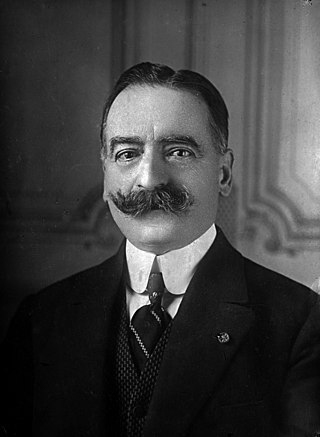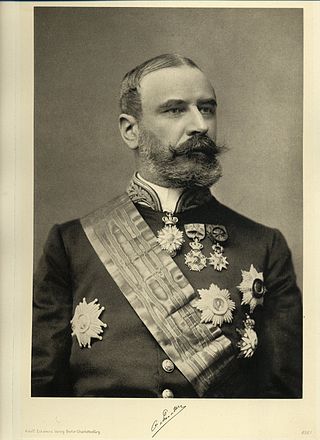
General elections were held in Belgium on 17 February 1946. The result was a victory for the Christian Social Party, which won 92 of the 202 seats in the Chamber of Representatives and 51 of the 101 seats in the Senate. Voter turnout was 90.3%.

General elections were held in Belgium on 4 June 1950. The result was a victory for the Christian Social Party, which won 108 of the 212 seats in the Chamber of Representatives and 54 of the 106 seats in the Senate. Voter turnout was 92.6%. This election was the last one in Belgian history where a single party achieved an absolute majority. Elections for the nine provincial councils were also held.

General elections were held in Belgium on 1 June 1958. The result was a victory for the Christian Social Party, which won 104 of the 212 seats in the Chamber of Representatives and 53 of the 106 seats in the Senate. Voter turnout was 93.6% in the Chamber election and 93.7% in the Senate election. Elections for the nine provincial councils were also held.

General elections were held in Belgium on 27 November 1932. The Catholic Party won 79 of the 187 seats in the Chamber of Representatives and 42 of the 93 seats in the Senate. Voter turnout was 94.3%.

General elections were held in Belgium on 20 November 1921. The Catholic Party, emerged as the largest party, winning 70 of the 186 seats in the Chamber of Representatives. Voter turnout was 91%.

Full general elections were held in Belgium on 14 October 1894, with run-off elections held on 21 October 1894.

Partial legislative elections were held in Belgium on 22 May 1898, with run-off elections held on 29 May. Under the alternating system, elections for the Chamber of Representatives were held in only four out of the nine provinces: Hainaut, Limburg, Liège and East Flanders. Thus, only 75 seats out of the 152 seats in the Chamber of Representatives were up for election. The Catholic Party retained their absolute majority.
Partial general elections were held in Belgium on 25 May 1902. The result was a victory for the Catholic Party, which won 54 of the 85 seats up for election in the Chamber of Representatives. Voter turnout was 95.7%.
Full general elections were held in Belgium on 2 June, 1912.

Partial general elections were held in Belgium on 24 May 1914. The result was a victory for the Catholic Party, which won 41 of the 88 seats up for election in the Chamber of Representatives.

General elections were held in Belgium on 24 May 1936. The result was a victory for the Belgian Labour Party, which won 70 of the 202 seats in the Chamber of Representatives and 39 of the 101 seats in the Senate. Voter turnout was 94.7%.

Full general elections were held in Belgium on 13 June 1848. They followed an equalisation of the tax qualifications for voters, which widened the franchise from 1.0% of the population to 1.8%. Unlike the previous rules which had favoured Conservatives and Catholics, this benefitted the Liberal Party and damaged the Catholics, who lost more than half their seats.
General elections were held in Belgium in 1833. In the Senate elections Catholics won 31 seats and Liberals seven. Only 46,000 people were eligible to vote.
Partial legislative elections were held in Belgium on Tuesday 9 June 1835. In the Senate elections Catholics won 31 seats and Liberals eight. Only 23,000 people were eligible to vote in the election.
Partial legislative elections were held in Belgium on 11 June 1839. In the Senate elections Catholics won 27 seats and Liberals 12. Voter turnout was 66.4%, although only 23,661 people were eligible to vote.

Partial general elections were held in Belgium on 8 June 1852. In the elections for the Chamber of Representatives the result was a victory for the Liberal Party, who won 57 of the 108 seats. Voter turnout was 69.2%, although only 42,053 people were eligible to vote.

General elections were held in Belgium on 10 December 1857, the first full general elections since 1848. The elections were called by royal order of 12 November 1857, dissolving the Chamber of Representatives that had convened in a new session only two days earlier.

General elections were held in Belgium on 11 August 1864, the first full general elections since 1857. The snap elections were called upon the loss of a parliamentary majority for the liberal government of Charles Rogier and a hung parliament, following the death of liberal representative Charles Cumont on 10 July 1864. In the last few parliamentary sessions preceding the elections, all Catholic members quit the Chamber, resulting in it not being quorate. The Chamber was disbanded by order of 16 July.

Partial general elections were held in Belgium on 14 June 1859. The result was a victory for the Liberal Party, which won 69 of the 116 seats in the Chamber of Representatives and 31 of the 58 seats in the Senate. Voter turnout was 55.9%, although only 49,672 people were eligible to vote.

Legislative elections were held in Belgium in June and July 1884, for partial Chamber and full Senate elections respectively. Voter turnout was 79.1% in the Chamber of Representatives elections, although only 69,276 people were eligible to vote.















